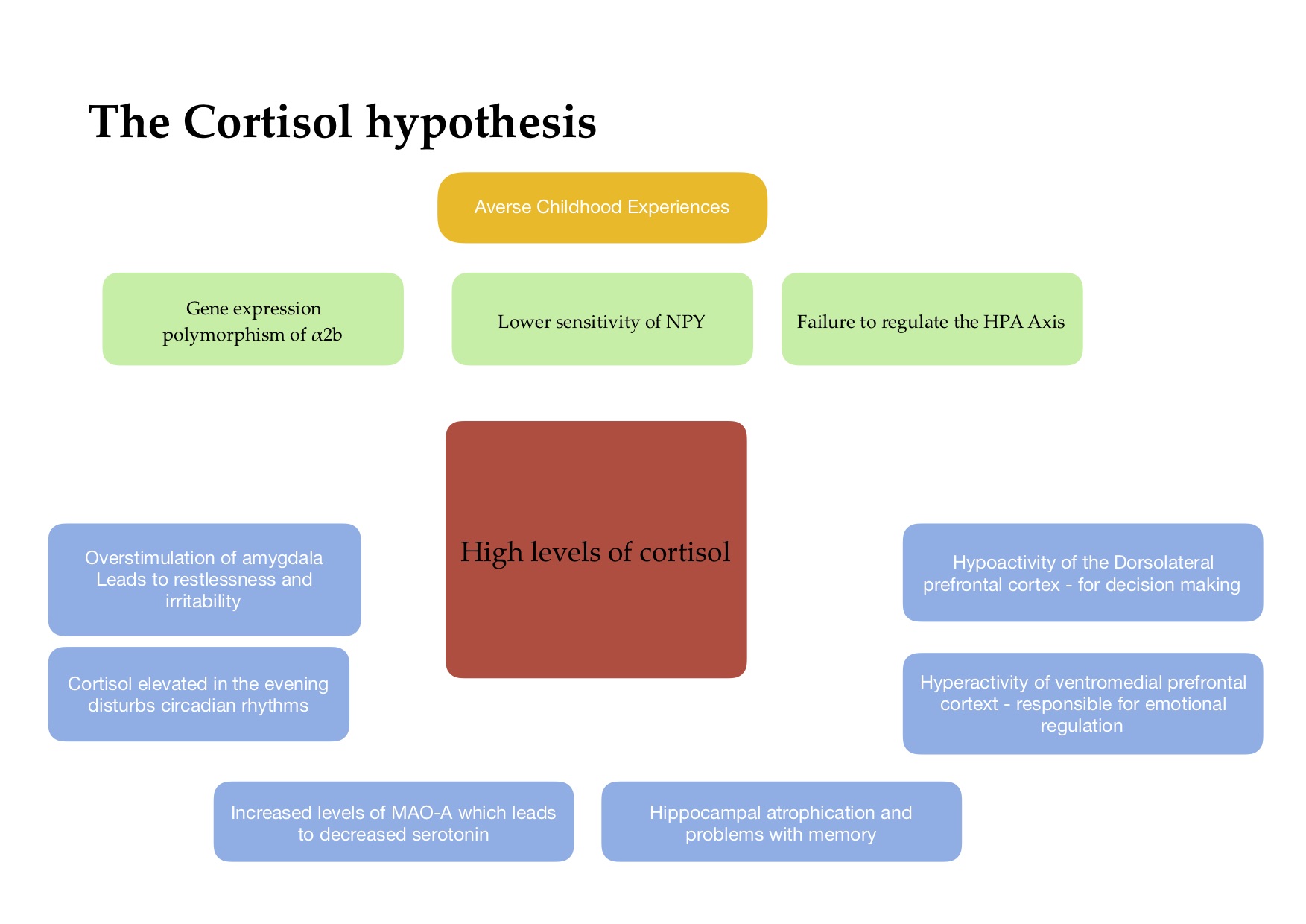Cortisol hypothesis
 The following infographic is to help outline the cortisol hypothesis. It is important when thinking about the cortisol hypothesis to consider the following strengths of the theory:
The following infographic is to help outline the cortisol hypothesis. It is important when thinking about the cortisol hypothesis to consider the following strengths of the theory:
1. It is very complex and explains several different and seemingly unrelated symptoms of depression.
2. It shows the link between anxiety disorders and depression.
3. It helps explain the role of environmental factors in depression. It is not a reductionist theory.

Key research
Malberg et al (2000) found that injecting rats with SSRIs led to neurogenesis in the hippocampus. The researchers argued that this neurogenesis is part of the way we recover from depression.
Videbech and Ravnkilde (2004) - a meta-analysis of 12 studies using brain scans to compare hippocampal volume of patients diagnosed with MDD and healthy controls. A total of 351 patients and 279 controls. They found up to a ten percent reduction of the hippocampus in the brains of depressed patients. The shrinkage was correlated to the number of depressive episodes.
Vrshek-Schallhorn et al (2013) found that cortisol awakening response (an increase between 38% and 75% cortisol levels peaking 30–45 minutes after awakening in the morning) was a predictor of recurring depressive episodes. It was not as strong a predictor of onset of depression.
Adam et al (2010) used a sample of 230 late adolescents. A prospective study over a period of one year. The researchers found a higher baseline CAR was associated with a significantly increased risk of developing MDD.
Nabeta et al (2014) A five-year prospective study. Higher salivary cortisol levels were associated with a later depressive state in 44 elderly healthy Japanese women living in a rural community. The salivary cortisol levels were not associated with later depressive state in the male sample.

 IB Docs (2) Team
IB Docs (2) Team
